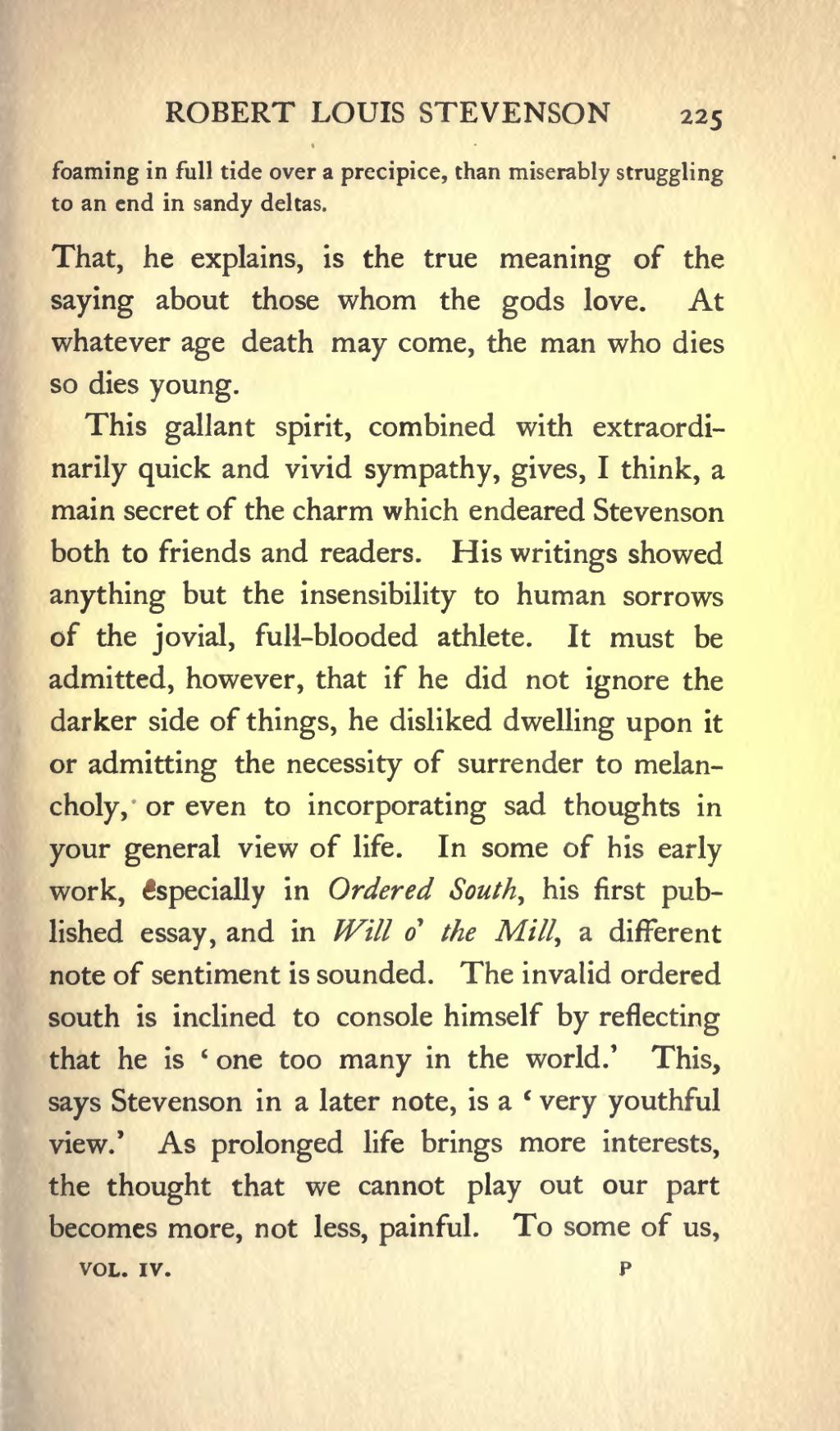foaming in full tide over a precipice, than miserably struggling to an end in sandy deltas.
That, he explains, is the true meaning of the saying about those whom the gods love. At whatever age death may come, the man who dies so dies young.
This gallant spirit, combined with extraordinarily quick and vivid sympathy, gives, I think, a main secret of the charm which endeared Stevenson both to friends and readers. His writings showed anything but the insensibility to human sorrows of the jovial, full-blooded athlete. It must be admitted, however, that if he did not ignore the darker side of things, he disliked dwelling upon it or admitting the necessity of surrender to melancholy, or even to incorporating sad thoughts in your general view of life. In some of his early work, especially in Ordered South, his first published essay, and in Will o' the Mill, a different note of sentiment is sounded. The invalid ordered south is inclined to console himself by reflecting that he is 'one too many in the world.' This, says Stevenson in a later note, is a 'very youthful view.' As prolonged life brings more interests, the thought that we cannot play out our part becomes more, not less, painful. To some of us,
